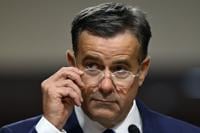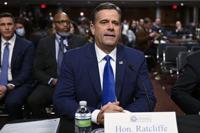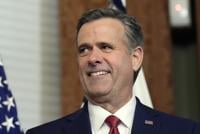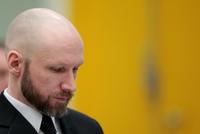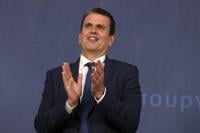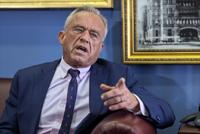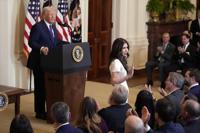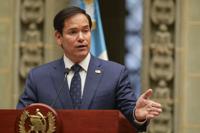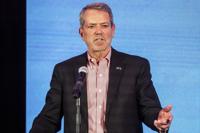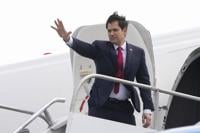WASHINGTON (AP) — The Senate on Thursday confirmed John Ratcliffe as CIA director, President Donald Trump's nominee to lead America's premier spy agency and his second nominee to win Senate approval.
Ratcliffe was during Trump’s first term and is the first person to have . The Texas Republican is a former federal prosecutor who emerged as a fierce Trump defender while serving as a congressman during Trump’s first impeachment.
The vote was 74-25, with many Democrats voting no.
At his , Ratcliffe said the CIA must do better when it comes to using technology such as including Russia and China. He said the United States needed to improve its intelligence capabilities while also ensuring the protection of Americans' civil rights.
Ratcliffe said he would push the CIA to do more to harness technologies such as AI and quantum computing while expanding use of human intelligence collection.
“We’re not where we’re supposed to be,” Ratcliffe told members of the Senate Intelligence Committee.
While some Democrats raised questions about Ratcliffe's ability to lead the CIA objectively, Republicans hailed his experience and said they looked forward to confirming the rest of Trump's national security nominees.
Ratcliffe was sworn into office shortly after winning Senate confirmation.
was confirmed earlier this week as secretary of state, the first member of Trump's Cabinet.
The CIA director has not always been a part of a president’s Cabinet, though President Joe Biden elevated the position to Cabinet level under Ratcliffe’s predecessor, William Burns, and Trump’s White House as a Cabinet member.
Trump and other Republicans have criticized the work of the CIA and other spy agencies, saying they have focused too much on climate change, workforce diversity and other issues.
The calls for a broad overhaul have worried some current and former intelligence officials who say the changes could make the country less safe.
Ratcliffe has said he views China as America's greatest geopolitical rival, and that Russia, Iran, North Korea and drug cartels, hacking gangs and terrorist organizations also pose challenges to national security.
He supports the Foreign Intelligence Surveillance Act, a government spying program that allows authorities to collect without warrant the communications of non-Americans outside the country. If those people are communicating with Americans, those conversations can be swept up, too, which has led to questions about violations of personal rights.
Like other Trump nominees, Ratcliffe is a Trump loyalist. Aside from his work to defend Trump , Ratcliffe also former special counsel Robert Mueller when he testified before lawmakers about his investigation into Russian interference in the 2016 election.
As director of national intelligence, Ratcliffe oversaw and coordinated the work of more than a dozen spy agencies. Among other duties, the office directs efforts to detect and counter foreign efforts to influence U.S. politics.
Trump picked Ratcliffe to serve in that position in 2019, but he after lawmakers raised questions about his qualifications. He was ultimately confirmed by after Trump resubmitted the nomination.
In that job, Ratcliffe was accused by Democrats of politicizing intelligence when he that purported to reveal information about Democrats during the 2016 election even as he acknowledged the information might not be accurate.
Before Thursday's confirmation vote Democrats questioned whether Ratcliffe would place his loyalty to Trump ahead of the duties of the office. Concerns raised by Democrats earlier in the week forced the Senate to postpone Ratcliffe's confirmation vote by two days.
Trump’s second-term nominee for director of national intelligence, Tulsi Gabbard, likely faces a tougher road to confirmation. Gabbard, a former Democratic congresswoman from Hawaii, has faced bipartisan over past comments supportive of Russia and 2017 meetings with then-Syrian President Bashar Assad.
Gabbard's confirmation hearing before the Senate Intelligence Committee is scheduled for Jan. 30.


